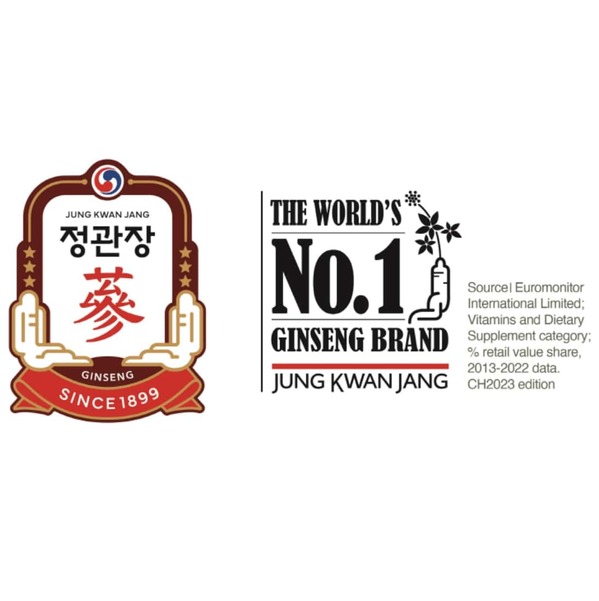Reduce burn, grow revenue, repeat. Software startup focused on the trucking industry has learned from the mistakes of others and is relying on its own cash flow for survival “Winter is coming” goes the house motto of the Starks of Winterfell in the television series Game of Thrones based on the books by George RR Martin. In Pakistan, the fundraising winter is not just here, but likely to be a very, very long one, and the few startups still alive are the ones who have mentally adjusted to that reality.
One of those is Trukkr, the B2B software company focused on providing and enterprise resource planning (ERP) tool to the trucking industry in Pakistan. The company is now cash-flow positive, according to its founders, and is reliant mainly on its own internally generated cash flow for survival, recognizing the low likelihood of large sums of venture capital being made available to Pakistani startups any time soon. Building a startup from scratch and getting it to cash flow breakeven is an impressive enough feat on its own, but what makes it more so is the fact that the company raised one of Pakistan’s largest seed rounds, announcing in March 2023 that they had raise $6.

4 million from leading investors like Accion Venture Lab and Sturgeon Capital. The temptation to spend relatively large sums of money early in a start-up’s evolution can be quite high, and most Pakistani startups that were funded in the heady days of 2021 and 2022 have flamed out in large part because they spent very freely without having a game plan to reach financial sustainability within a reasonable time frame. To borrow terminology from the startup accelerator Y Combinator, they were never “default alive”.
So how did Trukkr pull it off? Well, it helps that the business is run by a founding team that has a family history in the trucking business, and so had a running head start in knowing the challenges of the industry. From trucking to tech Co-founder Sheryar Bawany, who comes from a family with interests in the trucking business, identified a few major issues in the sector and set out to address them. “The trucking industry in Pakistan has long suffered from a lack of digitization.
Before founding Trukkr, I ran a trucking company for several years and noticed that everything relied on outdated methods, like pencil and paper,” Bawany told Profit. He explained how finding and arranging trucks was a time-consuming process, with companies spending hours on the phone trying to secure transportation. “This inefficiency was one of the main drivers behind developing a technology platform to streamline the process.
” “Another critical issue was the lack of visibility and transparency, leading to a significant trust deficit between truckers and companies. Businesses often had no idea where their cargo was or if it would be delivered on time,” he added. Lastly, Bawany explained that the most pressing challenge was the working capital issue.
Truckers faced upfront costs like fuel and maintenance, yet payments for services were delayed by months. His solution was to build an ERP platform to help with the coordination of capacity and tracking of in-transit cargo, and then went one layer deeper but embedding fintech solutions within the platform to help bridge the working capital financing gap by offering lending solutions. Trukkr is a two-sided market place, serving both trucking companies and the businesses that are their clients.
Bawany explains: “We serve two types of customers: truckers and companies. On the company side, businesses use our platform to source trips, manage their logistics, and track their loads in real-time. For truckers, we offer working capital loans to help them manage their business cash flows effectively.
” Two sided market places are a uniquely hard challenge in the tech world. You have to incentivize both the demand side by having enough buyers on the platform and the supply side by having enough sellers of whatever product or service you wish to build a marketplace for. The simplest solution to this is just direct subsidies to both sides of the equation: offer high prices to sellers for their products and low prices to buyers, connect enough of them on your platform, and hope that people develop the habit of buying and selling on your platform before you run out of the money needed to keep subsidizing this business.
The Trukkr team, however, decided that they would take a different approach: relying on the convenience of the marketplace – and the availability of financing solutions for the sellers – to create their marketplace into a sustainable business. Trukkr through the years In 2019, a team of four people got together to create technology that would address key industry challenges. “While others were busy raising funds, we concentrated on building a comprehensive digital solution.
By 2021, we were the first to launch a marketplace application for trucking in Pakistan,” said Bawany. Although other companies followed, many offered only basic booking apps, Trukkr’s focus remained on developing a robust Transport Management System (TMS). “After five years of dedicated effort, I am confident that our TMS is the best in Pakistan, reflecting the extensive time and resources we invested in its development,” he shared with conviction.
But the question remains; how has Trukkr managed to survive in a climate that has caused even seasoned businessmen to quake in their boots? The key is smart spending. Trukkr raised $6.4 million in its seed round, and according to Bawany, nearly all of it has been allocated to developing the Trukkr platform.
“Unlike many competitors who focus heavily on operational expenditures, we believe in conserving resources and investing wisely. Burning money in operations, which some startups in our sector do, doesn’t yield the same benefits in Pakistan as it might in other countries with more established startup infrastructure. Here, startups need to build their own infrastructure, making it crucial to avoid unnecessary spending.
” The company’s approach emphasises fiscal discipline and product development over excessive operational costs. “Our funding is used almost entirely — 90% — to enhance our platform. We are known for being extremely cost-conscious, to the point where even minor expenses, like printing extra pages, are scrutinised.
This stringent cost management reflects our broader belief in applying traditional business principles to the startup world.” In Pakistan’s business culture, younger people never have much money. Even among those hailing from industrialist families, the parents control the capital until they retire and their children are old enough to take over the business.
What venture capital did was give a lot of money to very young people, who then ended up falling prey to the opulence and glamour that startups globally characterise. Speaking on the matter, Bawany said, “I recall that during our journey, while many startups were spending heavily on flashy offices, stylish chairs, and bars, we often debated how much to invest in such amenities. As the youngest founder, I initially advocated for slightly better office environments and equipment.
However, over time, it became increasingly clear that maintaining financial discipline and focusing on what truly matters was far more important than investing in non-essential luxuries.” “We reject the notion that spending heavily is necessary for success or that a high top-line number is a true measure of progress. Instead, we focus on building a solid business foundation with sustainable unit economics.
Having previously built a business, I’ve learned the importance of financial discipline, especially during challenging times. Our team shares this mindset, understanding the need to manage funds meticulously, even though the money is raised from venture capital. We treat every dollar with the same care as if it were our own, ensuring we build both the product and the necessary infrastructure effectively,” Bawany explained.
He added, “Many competitors of Trukkr in the logistics sector raised over $10 million in seed rounds and splurged extravagantly, which I find nonsensical.” He agreed that in Pakistan’s nascent startup ecosystem, giving such large sums to young, inexperienced founders often leads to immaturity. “This first cycle of VC funding revealed that excessive early funding is not ideal, and investors are unlikely to repeat this mistake,” Bawany concluded.
They believe that this is the reason why while other companies were downsizing during the industry’s downturn, Trukkr’s disciplined approach allowed them to continue hiring and expanding their team. “This made it easier to retain and attract top talent as other firms were laying off employees,” added Kasra Zunnaiyyer, another co-founder. When asked to share some hard lessons that he has learned from operating a business in an uncertain economy like Pakistan’s, Bawany said, “The key to success starts with the basics: honesty and realism.
Be honest with your investors, as they support you through tough times. Our transparency about our situation, without exaggerating successes or downplaying challenges, helped us maintain their trust. Many rookie startups make the mistake of inflating their success during good times, which sets unrealistic expectations.
When difficulties arise, this dishonesty backfires, leading to blame-shifting and excuses. Instead, be realistic and straightforward, especially when facing economic downturns. Additionally, manage your finances prudently—avoid overpaying yourself or spending extravagantly.
Focus on building value and maintaining fiscal discipline, which is crucial in emerging markets like Pakistan.” The valuation trap Another problem that many startups run into is chasing high valuations. Bawany says, “My view on valuation is somewhat unconventional.
Often, we see billion-dollar companies plummet in value, revealing the unreliability of paper valuations. Valuation is crucial as it determines fundraising potential, but it’s important to recognize that valuations are negotiated, not demanded. In 2021, many startups received inflated valuations due to misrepresented numbers, with some startups valued at over $50 million despite being in their early stages.
This unrealistic optimism has harmed the startup ecosystem in Pakistan, leading to lower valuations today. Instead of focusing on valuation, startups should prioritise profitability and solid business management. If a business demonstrates positive unit economics and growth, it will eventually receive a fair valuation, even if not immediately.
” While Trukkr is profitable, the founders like to call it being ‘financially sound’ and ‘avoids burning money’. “Unlike traditional businesses, startups must balance profitability with scaling. To grow, more resources are often required, which can reduce short-term profits.
At Trukkr, most profits are reinvested to support expansion, finding a balance between profitability and growth,” Bawany expounded. When asked about Trukkr’s experience with fundraising after their last round, Bawany said, “Securing investment has become challenging as global investors are selective, particularly when macro conditions in Pakistan aren’t favourable. In contrast to 2021, where investors actively sought opportunities, now you must be proactive in attracting interest.
Despite this, Trukkr’s in-house developed platform, now reaching international markets, exemplifies Pakistan’s growing tech capabilities and competitiveness.” Trukkr has recently launched operations in Bahrain and plans to expand further into the Middle East in the near future. Speaking on expansion, Zunnaiyyer told Profit , “Our software, designed with a focus on product excellence, is tailored for international use, starting with Pakistan and expanding to other countries like Bahrain.
Despite its Pakistani roots, it competes with billion-dollar companies. We continually enhance it to ensure customer acquisition and retention. Nearly 99% of our users remain engaged, integrating the platform into their daily operations, highlighting its value both in Pakistan and potentially abroad.
” Three school friends, and a boxer from Lyari How the Trukkr founding team came together is a story in itself. Three of the founders were schoolmates but there is one other, much younger member of the team who did not quite fit in. Kasra Zunnaiyyer, a young boy obsessed with playing and building games, was a participant at Pro Battle, a CSS flagship competition at IBA, where he ended up meeting Mishal Adamjee, a sponsor of the event and now one of the founders of Trukkr.
Before becoming one of the youngest startup founders, Zunnaiyyer was a boxer in Lyari. He told Profit, “My boxing career is deeply rooted in my father’s passion for the sport. He was a Pakistan champion for three years and was involved in various sports, but boxing was his main focus.
From a young age, my brother and I were trained by him at home, almost daily.” When he was in ninth grade, he joined a boxing club in Lyari, where he gained more formal experience. According to Zunnaiyyer, his height, reach, and early training made him a skilled boxer, however, it wasn’t long before he realised that while he had the technical ability, he did not quite possess the ferocity needed to excel in the sport.
“I didn’t enjoy the idea of knocking people out, so despite my talent, I knew boxing wasn’t my true calling.” “My interest in technology began in sixth grade when I got my first computer and internet access. I quickly became passionate about creating video games and, by ninth grade, had published my first computer game, teaching myself 3D modelling, programming, and game design.
This passion led me to develop and publish several more games, including Pakistan’s first double-A virtual reality game on Steam,” he added. Zunnaiyyer’s passion for tech led him to frequent tech competitions in the country, often competing solo even in group events. “In 2016, I won the Microsoft Imagine Cup in Asia.
I found that working alone allowed me to move faster and think more efficiently during these competitions” He attended IBA’s ProBattle in Karachi, a game development contest, where participants had three days to develop and present a game, and teams could be as large as needed. “While most teams had four to eight members, I competed alone, using three laptops. Initially, the organiser was hesitant, but after I insisted, they allowed me to participate.
The competition was sponsored by Mishal, who is now one of my partners. When the results were announced, the team with eight members was the runner-up, and I won first place as a solo competitor. This caught Mishal’s attention, and he invited me to his office the next day.
” Zunnaiyyer was in his second year of university, but joined Adamjee’s game studio as an intern. “After three months, I was promoted to senior lead for a project, and within a year, I became the CTO of the game studio. We developed Pakistan’s first double-A virtual reality game.
Though it was a great project, VR headsets were not mainstream yet, so it didn’t achieve commercial success.” Adamjee and Bawany were friends from school and when Bawany asked him to develop a software to manage his logistics company, ASL, the friends ended up considering building a general solution for the entire industry. This conversation eventually led to the founding of Trukkr.
Before long, Zunnaiyyer became a part of the founding team of Trukkr. During this time Zunnaiyyer was also working as the CTO of Creditbook, where he built the technology stack. “Eventually, I chose to focus full-time on Trukkr, as it presented more complex technological challenges.
” He also completed his master’s from MIT while still serving as the CTO of Trukkr. Zunnaiyyer believes himself to be fortunate to work with experienced business leaders who he says have acted like mentors over the years. “Initially, it felt like a mentorship experience as I learned directly from individuals from prominent business families,” he said.
Zunnaiyyer was featured on the Forbes 30 Under 30 list this year, getting global recognition for his work, though perhaps characteristically, he almost ignored the opportunity to be recognized because he did not think it was real. “With “founder” in your LinkedIn title, you receive numerous marketing messages daily, often from bots. About 45 days before the Forbes 30 Under 30 deadline, Rana, the head of Forbes 30 Under 30, messaged me on LinkedIn.
It looked like a marketing message, so I overlooked it. Two days before the final submission, she found me on Instagram and sent a follow-up. Realising I missed the initial LinkedIn message, I quickly submitted the required information.
Later, I was surprised to learn that I had made it onto the Forbes list when a team member congratulated me.” What comes next Having built a marketplace that can survive without external capital is certainly impressive. What comes next, however, is the hard slog of sticking with a business where your objective goes from survival to growth.
With Pakistan’s market largely not seen as large enough for building a venture-scale business, pressure is mounting on Pakistani startups to show that they can expand beyond the country into other markets. And it absolutely does not help that the largest, most logical market to which they could expand – India – is closed off to Pakistani companies. That leaves even relatively more successful startups like Trukkr competing to build out businesses in the Gulf Arab states, where the challenges comes from the fact that while they are rich countries, they tend to be very small markets individually, since there are six countries with the a total population less than that of Sindh.
Six countries, six different regulatory regimes, six different subsidiaries, all to serve small markets with the possible exception of Saudi Arabia and the United Arab Emirates. Bahrain has a relatively more open regulatory infrastructure, which likely explains why Trukkr decided to expand into that market. It is also likely a stepping stone into Saudi Arabia, which – while the largest market in the Gulf by far – is also highly competitive with several well-funded Saudi startups operating in the market.
The approach to international expansion – start with Bahrain instead of directly rushing headlong into an expensive competition for market share in Saudi Arabia – seems to be well aligned with Trukkr’s overall approach: conserve your ammunition for the long game. More than anything else, what appears to distinguish this startup’s founding team from its better funded rivals is that: the willingness to stick it out for as long as it takes to win. Whether or not they will last until a successful exit, of course, remains to be seen.
But they seem to be making the kind of moves founders who have succeeded in the past have made. Save my name, email, and website in this browser for the next time I comment. Δ document.
getElementById( "ak_js_1" ).setAttribute( "value", ( new Date() ).getTime() );.



















